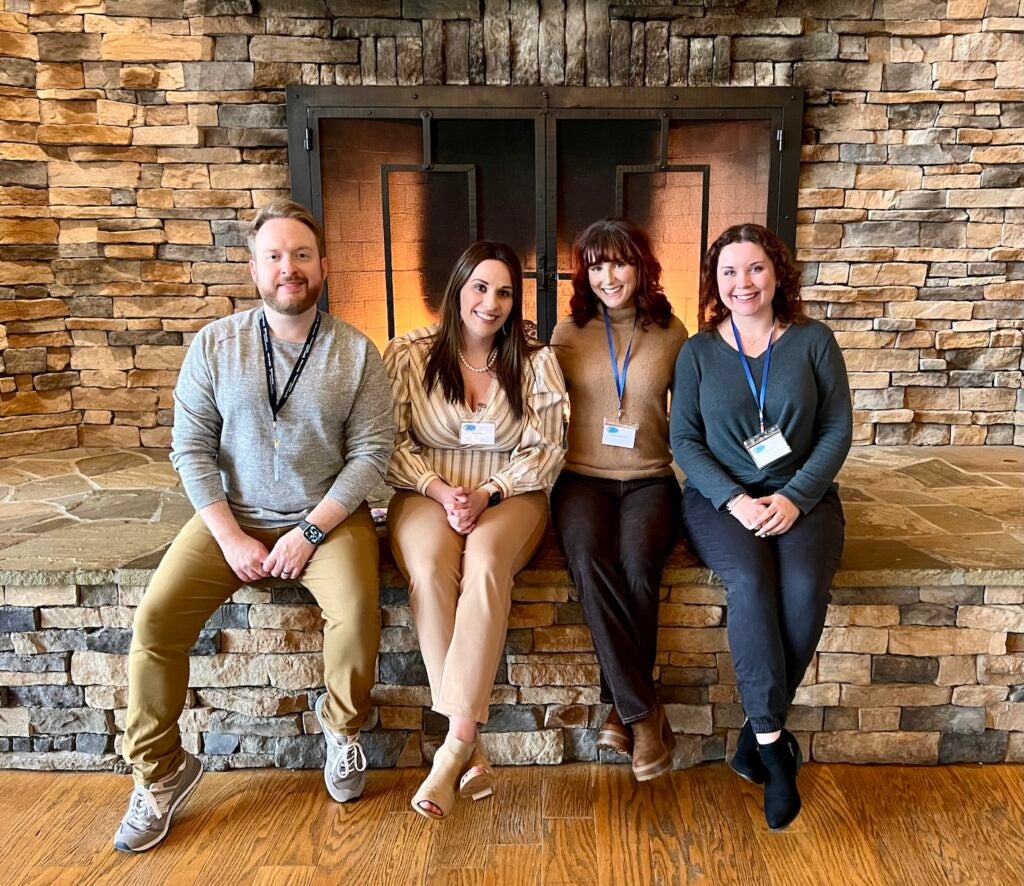During their graduate school experience, Sarah and Nakayla served as interns and graduate students in the West Virginia Autism Training Center (WV ATC) at Marshall.
The WV ATC is a statewide, community-based agency aimed at supporting individuals with autism spectrum disorders (ASDs) as they work toward a fulfilling, meaningful life.
Sarah and Nakayla presented at the West Virginia Licensed Professional Counselors Association conference in the April, WV ATC Coordinator of Campus Based Services Nate Hensley and Mental Health Counselor Shelby Babbington.
Their 90-minute presentation provided continuing education credits to about 100 licensed professional counselors (LPCs) in attendance.
“I was shocked when I was asked to present,” Nakayla said. “But it made me realize, I really do know this material. I’ve lived it through my internship and work here.”
Creative techniques in ASD therapies can look like encouraging pretend play, adding visual supports, art therapy, sensory-based activities and more. Using creative techniques in therapy can help establish rapport to help build the therapeutic relationship—games, interactive sessions and nontraditional approaches—can open the door to trust and connection.
“When you’re playing a game like UNO, you’re building skills like communication, active listening, turn taking, and that sets the scene for opening up about your day, and it makes vulnerability a little bit easier,” Shelby said.
As students in Marshall’s fully online counseling program, Nakayla and Sarah said their hands-on work in the WV ATC helped bridge the gap between coursework and practice.
“We make a game out of topics that I think are kind of boring like budgeting. We morphed the game Life and Monopoly and integrated counseling theories and techniques so the students could understand it, but it’d still be engaging for them and for us,” Sarah explained.
The experience in the WV ATC also helped them develop one of counseling’s most essential skills: flexibility.
“I am a planner, and I really like to have a plan, and I don’t like to deviate,” Nakayla said. “But in working with the autistic population, you can’t approach every client in the same way. It has helped me learn to pivot on the fly and learn to be flexible by offering different techniques.”
As for next steps, Nakayla is hopeful to pass her LPC licensure exam and find a job, and Sarah is planning to study for the school counseling PRAXIS and work in the school system.
Nate said he believes their presentation will give them an edge.
“Being able to say you trained licensed counselors as a graduate student—that’s a standout accomplishment,” he said. “The teamwork they showed was incredible.”
Sarah and Nakayla’s Marshall experiences highlight how creativity, compassion, and hands-on experience can come together to make a real difference in the lives of others.
As they move forward in their careers, Sarah and Nakayla carry with them not only valuable skills, but also a commitment to empathetic care for individuals they will counsel.





